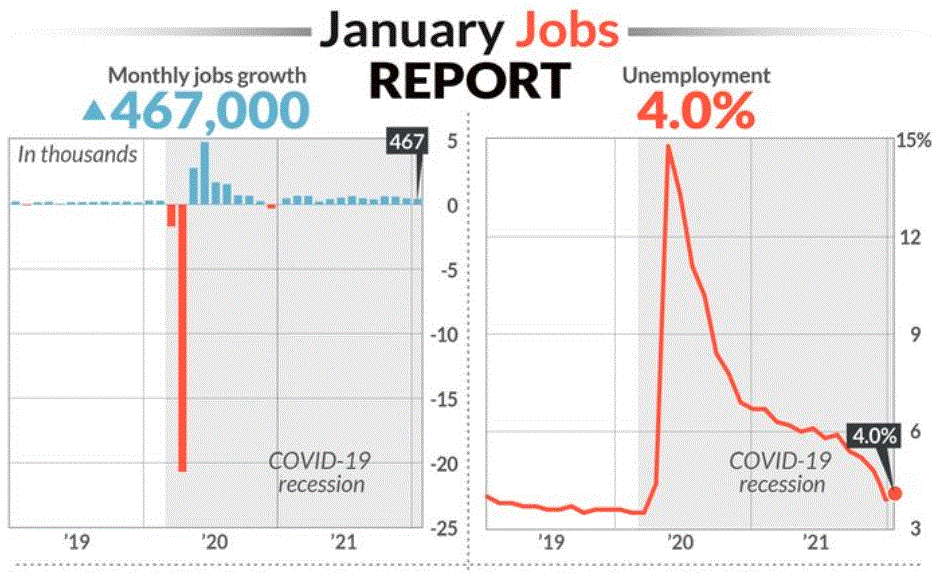MarketWatch
The numbers: The U.S. added a robust 467,000 jobs in January and hiring was much stronger at the end of 2021 than originally reported, indicating businesses did a better job of recruiting workers to fill record openings even as omicron blitzed the economy.
The unemployment rate rose to 4% from 3.9%, the government said Friday.
Economists polled by Wall Street had forecast 150,000 new jobs, but many investors were bracing for the first contraction in employment since December 2020 because so many workers got sick from omicron last month.
Instead, companies apparently ramped up hiring. Employ gains in December and November were also much stronger than initially reported, newly revised data show.
The U.S. added 510,000 jobs in December instead of 199,000. And employment rose by 647,000 in November compared to the prior estimate of 249,000.
The government revises the employment figures annually based on new information and a comparison to tax records filed by individuals and businesses.
By every measure, the labor market is bursting at the seams. Businesses have a near-record 10.9 million job openings, for one thing. Many are so desperate to hire they are offering better pay, bonuses and other benefits.
Hourly wages rose 23 cents, or 0.7%, to $31.63 in January. Over the past year wages have risen 5.7% — the biggest yearly increase in decades.
One of the biggest problems businesses face is finding enough labor to keep up with strong demand for their goods and services. The economy is missing as many as 4 million workers who likely would be employed now had the pandemic never happened.
Big picture: The economy faces many challenges on the road to recovery, but a lack of jobs is not one of them.
The strong labor market has given more leverage to workers to ask for higher pay or take better-paying jobs. It’s also padding their income and allowing them to spend more — a good thing for the economy.
The downside? Higher pay could feed already high U.S. inflation unless workers prove to be more productive in their jobs. Inflation is also rising faster now than wages.
Market reaction: Stock-index futures weakened after the data, with contracts on the S&P 500 SPX, -2.44% and Dow Jones Industrial Average DJIA, -1.45% extending a decline and Nasdaq-100 futures trimming a gain. The yield on the 10-year Treasury note jumped.
Analysts said the unexpectedly strong report reinforces expectations the Federal Reserve will move aggressively to raise rates this year as it attempts to rein in inflation.














